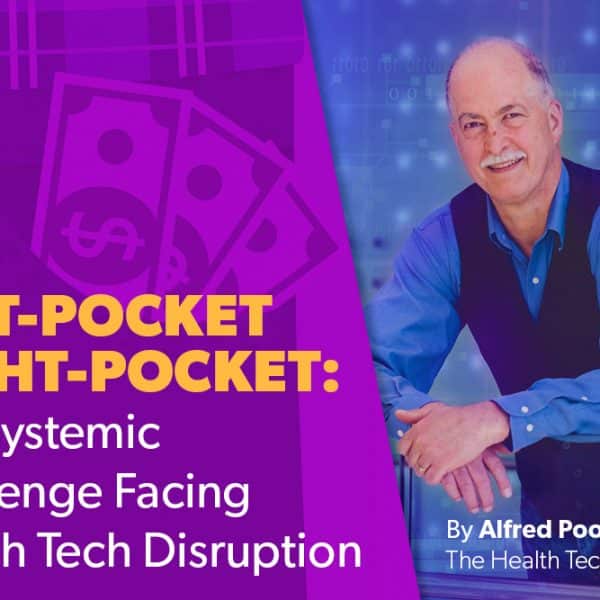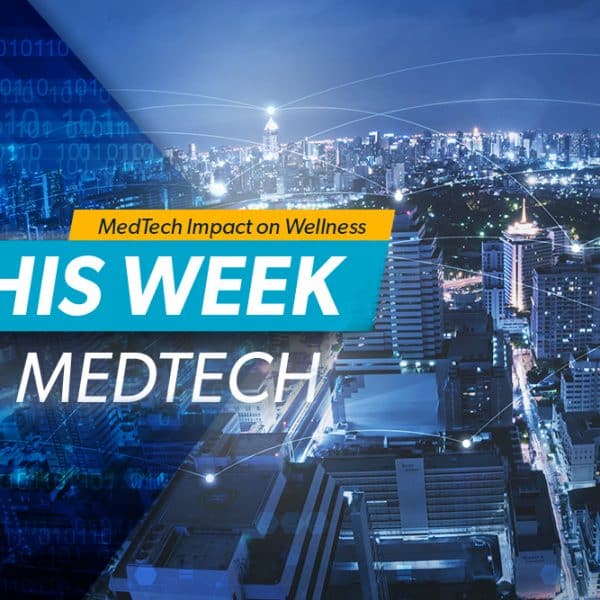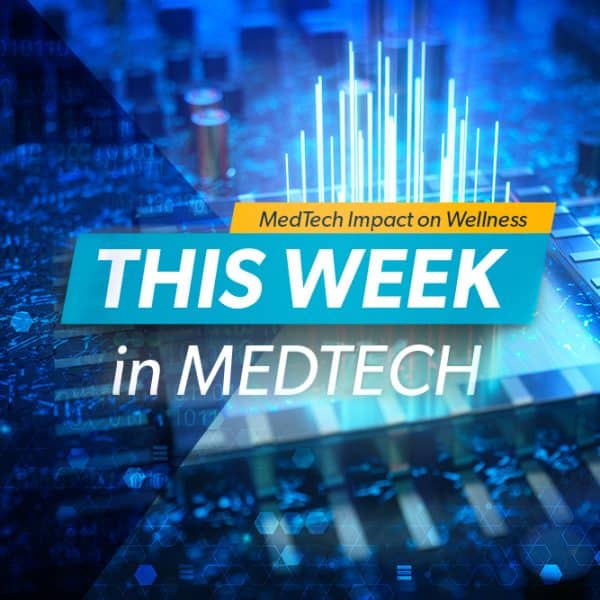Medtech Insider: Tampa General Hospital Launches Telehealth Solutions
Tampa General Hospital Launches Telehealth Diagnosing Stations
Tampa General Hospital (TGH) based in Florida, have launched new telehealth diagnosing stations to help hospital staff receive diagnoses for mid-to-minor concerns. Hospital staff at TGH are now able to enter self-contained telemedicine stations located inside the hospital for virtual life-sized consultations with physicians and automated pharmaceutical services. After six years of development with digital health company OnMed, the technology allows for video consultations with healthcare providers and features “built-in automated prescription drug dispensary, thermal imaging, ultraviolet sanitization and facial recognition to operate as self-contained, unstaffed exam rooms.” In a statement, Adam Smith, senior vice president of ambulatory services for TGH shared: “Right now, we are committed to prioritizing the wellness of our own team members by providing them access to instant care, when they need it.” Austin White, founding partner and CEO of OnMed, added: “We believe telehealth is the future, but in order to see long-term success, it has to go beyond a phone call with a doctor. This is why we created OnMed—to combine the clinical expertise and diagnostic capabilities of an in-person visit with the convenience and efficiency of a remote visit.”
Cerner Expands Reach in Federal Health Market
Health IT giant, Cerner has recently announced an agreement to acquire IT consulting and engineering firm AbleVets as a wholly owned subsidiary. In a statement, Travis Dalton, president of Cerner Government Services shared: “AbleVets has been a trusted partner to Cerner and is providing critical support to our federal programs.Integrating the team into our business is a natural next step of our relationship. We expect AbleVets’ technical expertise and execution in solving complex problems will accelerate Cerner’s success in providing integrated, seamless care for veterans, service members and their families.” The acquisition follows Cerner’s estimated $16 billion contract with both the Department of Veteran Affairs and the Department of Defense to launch new EHR platforms. AbleVets and Cerner are expected to complete the transaction within the fourth quarter.
1.5 Million Patients’ Data Exposed In September Reported Breaches
According to a report from the U.S. federal government, in the month of September alone, nearly 1.5 million had their personal health data exposed in healthcare breaches, more than doubling the number of reported breaches in August. While the number of data breaches overall decreased, the number of patients exposed have significantly increased with three of the reported breaches affecting more than 100,000 individuals each. The largest breach came from OB-GYN practice, Women’s Care Florida which reported a breach of 528,000 patients. The federal report observed that hacking and IT incidents accounted for 62% of reported data breaches, while the remaining breaches were caused by theft, unauthorized access, or unauthorized disclosure of patient records.
Google hires Karen DeSalvo as First Chief Health Officer
Google recently announced the hire of former National Coordinator for Health Information Technology and U.S. Assistant Secretary, Karen DeSalvo, for Health as their first-ever Chief Health Officer. Increasingly, Google’s parent company Alphabet is investing heavily in the health sector, with several recent high-profile hires signaling the tech giant’s plans to further expand into the industry. During her time as the National Coordinator for Health Information Technology, DeSalvo spearheaded a series of EHR certification programs geared towards interoperability advancements and patient access. In her new role, DeSalvo will help advise Google on doctors and nurses across the company’s “cloud unit and Alphabet’s life sciences arm Verily.”
Technology in Cardiometabolic Health
This partner blog is from The Cardiometabolic Health Congress (CMHC). In collaboration with MedTech, CMHC will host the Cardiometabolic Tech Summit on October 10th to analyze topics including big data and its role in cardiometabolic health, developments in genetic testing, medical devices, patient usage, and more. Read More
Left-Pocket/Right-Pocket: The Systemic Challenge Facing Health Tech Disruption
By Alfred Poor, The Health Tech Futurist
In the past decade, health technology has raced ahead at an unprecedented pace. We are seeing new tools that help diagnose and treat a wide range of illness and chronic disease sooner and more effectively. Telemedicine brings healthcare services to those who need it but who have difficulty getting to a hospital or other clinical setting. Remote patient monitoring can detect problems before they become emergencies requiring an ambulance ride and an expensive hospital readmission.
New wearables make it possible to automatically maintain a diabetic patient’s blood glucose levels within a much tighter range, greatly reducing the chance of expensive and life-changing secondary complications such as blindness or the loss of a limb. Smart implants can monitor important biometrics such as glucose levels without the frequent need for invasive finger sticks to draw blood. Innovation is not limited to diabetes. Exoskeletons and smart prosthetics can reduce healthcare costs while delivering a better quality of life. The list of disruptive innovations is nearly endless. But almost all of them share a common challenge; I call it the “Left-Pocket/Right-Pocket Problem.” A 2009 program in Camden, New Jersey, serves as a poster child demonstration of this situation. According to one government report, about half of all Medicare expenditures are spent on just five percent of the eligible beneficiaries. In Camden, a consortium of city hospitals pooled their data and discovered that one percent of the patients visiting the hospitals were responsible for $46 million in treatment costs over a five-year period.
A pilot program put together a team that targeted just 35 of these “frequent flyer” patients who racked up an average $1.2 million in hospital charges per month. Social workers coordinated their healthcare and other aspects of their lives, such as getting into drug treatment programs. They provided housing for the homeless patients and saw that they ate balanced meals every day. The result? The average monthly hospital costs were cut in half to $531,000. The cost of the program for a year was about $300,000. That amounts to a 20:1 return on investment. Here’s the problem; I don’t know of many hospital emergency departments that have line items in their budgets that cover apartment rent and social workers for homeless patients. The expenses come out of the left pocket, but the savings go into the right pocket. (Or to be more accurate, the “savings” mean that less money is taken out of the right pocket.) This is the challenge for disruptive health tech. It’s not enough to solve a problem; there must be a sustainable business model that pays for the new technology so that its development and production are sustainable.
Diabetes costs more than $300 billion each year in the U.S. alone, including both healthcare costs and reduced productivity. Imagine if a closed-loop wearable system could cut those costs by just one third, by eliminating many of the instances of costly complications. $100 billion is enough to pay more than $3,000 per year to each person with diabetes in the U.S. That would be more then enough to pay for a closed-loop insulin pump system for each patient. Similar cases can be made for other chronic diseases and ways that wearable health tech devices can provide a significant return on investment: COPD, heart failure, various forms of vision impairment, and more.
The problem is that we don’t have a closed-loop financial system to support these innovations. The savings – or reduced costs – benefit one entity’s budget while the cost of such programs might have to come from some other source.
We are seeing some signs of hope, however. For example, the Veterans Administration is a much more self-contained entity than some other healthcare organizations. The VA has been able to undertake some landmark projects in telehealth, especially in the areas of mental health treatment. The result has been greatly improved outcomes at much lower costs.
Businesses are another example of where health tech disruption is gaining traction. Employee fitness incentive programs have been proven over and over to have a real and significant return on investment that can transfer directly to a company’s bottom line. In addition to controlling healthcare costs (either direct costs or insurance premiums), these programs have been shown to reduce absenteeism, increase productivity, foster employee engagement, and improve employee retention. These gains can add millions of dollars to a business balance sheet every year.
While it’s important to build a better mousetrap, the world won’t beat a path to your door if you don’t have a way to pay for it. Health tech businesses must do more than just show that their products and services will save money; they must also show how the money can move through the system to cover the costs of the devices in the first place.
Author bio: Alfred Poor, the Health Tech Futurist, believes that innovative health tech will save healthcare in the U.S. and worldwide by lowering costs and improving outcomes. He is a full-time technology speaker and writer, and is the Editor of Health Tech Insider, an industry website and newsletter that covers wearable and mobile devices for health and medical applications.
This Week: Telehealth Innovation Bill Returns to Capitol Hill
CMS Launches New Physician Focused Claims Data Project
The Centers for Medicare & Medicaid Services has announced the launch of a new pilot program aimed at providing healthcare providers with direct access to patient claims data. Using application programming interfaces through the Medicare Blue Button program, the program is designed to allow practitioners with deeper insight into patients’ history, providing data access to previous diagnoses, medication lists, and more to provide a more full picture of a patient’s medical history. The pilot has launched on the program website, where clinicians may request access to the pilot. CMS will begin the program with a select group in August, and then expand to a growing number of providers. In a statement, CMS Administrator Seema Verma noted: “Technology, coupled with open data sharing, is how we will improve value, control costs and keep patients healthy while ensuring a solvent Medicare program for generations to come.
Kaiser Permanente Appoints First Chief Digital Officer
Kaiser Permanente has appointed Prat Vemana as its first Chief Digital Officer for Kaiser Foundation Health Plan and Hospitals. Vemana will be responsible for the strategy, development, and execution of the company’s digital vision in partnership with the internal health plan, hospital, and medical group teams. As the former Chief of Product for Home Depot, the move marks the continued trend of medical organizations looking outside of healthcare for technology expertise. In a released statement, Kaiser Permanente Chairman and CEO Bernard J. Tyson shared: “We’ve made tremendous investments in building our digital platforms and creating greater access for our members. Now we are taking it to the next level by focusing on digital experiences that change the way transactions and services are delivered.”
Researchers develop wearable device that could administer medication to prevent overdoes deaths
Researchers from Purdue University are developing a wearable sensor capable of detecting when a user’s heart rate decreases to trigger the administration of Narcan–an antidote used for opioid overdoses. Still in the proof-of-concept stage, the wearable sensor is made up of a battery, RF control, and induction device. In a video describing the developing technology, Hyowon Lee, an Assistant Professor of Biomedical Engineering at Purdue, explained: “A lot of time patients who overdoes are found alone and are incapacitated to inject the life-saving drug themselves. We are trying to come up with a closed loop solution that can automatically deliver an antidote.” The opioid crisis remains as a major public health crisis within the U.S., with over 70,237 overdose deaths in 2017 alone.
Telehealth Innovation Bill Returns to Capitol Hill for Third Attempt
The Telehealth Innovation and Improvement Act is headed back to congress after failed attempts in 2015 and 2017. The bill seeks to provide incentive for more healthcare providers to launch telehealth programs through reimbursements via the Department of Health and Human Services’ Center for Medicare and Medicaid Innovation (CMI). Additionally, the bill would have the CMI evaluate telehealth models for cost, effectiveness, and improvement in quality of care “without increasing the costs of delivery.” In a press release, U.S. Representative John Curtis (R-UT) who introduced the bill with co-sponsor Joe Neguse (D-CO) stated: “Telehealth innovation is critical to expanding cost-effective healthcare access in a state like Utah, where care is often unavailable or difficult to access for rural communities. […] Technology provides great potential to enhance connectivity between healthcare professionals and their patients and I’m pleased to work with willing partners on both sides of the aisle to find healthcare solutions for rural communities across Utah and around the country.”
MedTech Insider: Digital Health Market On Track for Its Best Year Ever
Digital Health Market On Track for Its Best Year Ever
A new funding report compiled by Mercom Capital Group has shown that the first half of 2019 has drawn in the largest funding numbers within digital health than any year prior, setting the market to reach unprecedented numbers come the year’s end. In line with previous reports completed by Rock Health and MobiHealthNews, the findings show a to-date funding of $5.1 billion raised by 318 deals (2018 drew $4.9 billion from 383 deals). The report further broke down the market funding through highlighting the highest funding market segments. Analytic startups currently lead the market with $1.1 billion, followed by telemedicine with $896 million and mobile health apps with $627 million. The findings have led many industry experts and stakeholders to express hesitant concern on a possible market bubble, such as Cercom Capital Group CEO, Raj Prabhu who shared: “We are in an ‘invest first and ask questions later’ environment where investors are more worried about missing out in this hot space. After a long hiatus, we are seeing several digital health companies entering the IPO market in the US. Successful IPOs could open the floodgates, whereas if IPOs fizzle out, it could shut the IPO exit path for many digital health companies.”
Mount Sinai Collaborates With LabCorp on AI Pathology Center
LabCorp and The Mount Sinai Health System have announced an additional aspect of their ongoing partnership: the two organizations will work together to develop the Mount Sinai Digital and Artificial Intelligence-Enabled Pathology Center of Excellence. LabCorp, which has previously implemented the Philips IntelliSite Pathology Solution into four of its laboratories will introduce the technology to all remaining location. In utilizing its expertise in digital pathology, LabCorp will help lead the integration into clinical practices throughout Mount Sinai’s hospitals. In a statement, Dr. Carlos Cordon-Cardo, chairman of the Department of Pathology, Molecular and Cell-Based Medicine at the Mount Sinai Health System shared: “Digital pathology gives us the unprecedented opportunity to expand our services to the community at large, and engage members of our department, considered key opinion leaders in their field, to provide expert diagnostic opinions in complex cases.” As one of the largest academic departments of its kind nationwide, the department processes over 80 million diagnostic tests each year.
First AI Pathology Tech With “Clinical Grade Accuracy”
Researchers associated with medical tech startup, Paige and Memorial Sloan Kettering Cancer Center have published a new article which details its artificial intelligence based detection system for identifying prostate cancer, skin cancer, and breast cancer. Published within the peer-reviewed medical journal, Nature Medicine, the company claims to have achieved “near-perfect accuracy.” In the article, the researchers describe the tech as having employed deep learning train on a data set of almost 45,000 slide images taken from more than 15,000 patients across 44 countries. In a statement, Co-Founder and Chief Scientific Officer of Paige, Dr. Thomas Fuchs shared: “After years of in-depth, comprehensive modeling, training, and testing, we are thrilled that Nature Medicine has published our paper, which demonstrates our ability to train accurate classification models at unprecedented scale, and validates our mission to create the world’s first clinical-grade, artificial intelligence in pathology.” The next step for the company is to begin the commercialization of the tech.
Physician Interest In Telemedicine Doubles
A new analysis completed by professional medical network, Doximity, has demonstrated a significant increase in physician interest in telemedicine. The analysis found that the number of physicians who self-reported telemedicine as a skill double between 2015 and 2018 and continues to trend upwards by 20%. According to a recent JAMA study, the trend correlates with the growing number of telemedicine patient visits which has increased by 261% annually between 2015 and 2017. The Doximity report noted: “In 2018, the global telemedicine market was valued at over $38.3 billion. By 2025, it’s projected that this market will exceed $130.5 billion.”
MedTech Insider: UK Announces New Funding Mandate for Health Tech
White House Release Updates to AI Transparency
The White House’s Office of Science and Technology Policy has released an update to its National Artificial Intelligence Research and Development Strategic Plan with a new set of objectives for federal AI research. The updated plan highlights explicit strategies for the development of safe and effective AI and machine learning technologies for healthcare and additional industries. The report emphasized the importance of transparency of AI developments within healthcare especially, explaining: “Many algorithms, including those based on deep learning, are opaque to users, with few existing mechanisms for explaining their results. This is especially problematic for domains such as healthcare, where doctors need explanations to justify a particular diagnosis or a course of treatment. […] Researchers must develop systems that are transparent, and intrinsically capable of explaining the reasons for their results to users.”
UK Announces New Funding Mandate for Health Tech
UK Health Minister Nicola Blackwood has announced a new funding mandate for health technology to be introduced in 2020. Speaking at the Association of British HealthTech Industries, Blackwood explained that the U.K. government has plans to build “a finance innovation ecosystem which promotes collaboration between the NHS and industry, to ensure new technologies meet NHS priorities and therefore have a ready-made market within the UK”. The funding mandate will function as a part of the Accelerated Access Collaborative–a UK organization which serves the NHS and industry partners. The AAC will develop a process which works to identify valuable new innovations which match the needs of patients and clinicians. Minister Blackwood noted: “The combination of a health tech funding mandate and a globally leading testing infrastructure will ensure the best new innovations get into the NHS, and to patients, faster.”
United Health Group Acquires Patients Like Me
After losing it’s majority stakeholder in April under direct pressure from U.S. regulators, health tech company, Patients Like Me, has been recently purchased by United Health Group. In an announcement, the company explained that in following with the acquisition, Patients Like Me will now join as a part of United’s research arm centered upon healthcare innovation. In a message to members, CEO Jamie Heywood shared: “We’ve chosen to join with UnitedHealth Group Research & Development because they share that same drive to improve health at the individual level and to ensure that healthcare outcomes across the board are more effective.”
Premier & UPMC Partner on New Pharma Supply AI Technology
Health improvement company Premier has partnered with UPMC owned cognitive supply chain company Pensiamo to launch a new pharmaceutical supply chain. The technology tool, CongnitiveRx, monitors market demand and utilizes machine learning to help maintain inventory levels during pharmaceutical shortages. The technology predicts and manages challenges related to drug shortages including inflation, declining reimbursement, and other significant supply chain factors. In a released statement, Pensiamo CEO Jim Szilagy shared: “CognitiveRx provides access to market exclusive recommendations that predict drug supply disruption risk, and support the rapid identification of clinical, purchasing and inventory solutions.”
University of Chicago Faces Lawsuit Over Patient Data Sharing With Google
The University of Chicago has been accused of sharing identifiable patient data in a recent potential class action lawsuit. Filed on behalf of a former University of Chicago Medical Center patient (with the goal of expanding to a class action lawsuit if additional patients come forward) the lawsuit claims that University disclosed confidential medical information to Google. Two years ago, the University of Chicago announced a plan to partner with Google to study ways which electronic medical records can make discoveries to improve healthcare standards. Both organizations have stated that the collaboration only included de-identified patient data. The lawsuit claims: “Publicly, Google and the University touted the security measures used to transfer and store these records, along with the fact that they had been ‘de-identified.’ In reality, these records were not sufficiently anonymized and put the patients’ privacy at grave risk.” In a statement to Fierce Healthcare, Matthew Fisher, a partner with Boston-based law firm Mirick O’Connell explained: “An implied question seems to be whether data can truly be de-identified at this point in time, especially when provided to a big tech company like Google.”
MedTech Insider: Researchers Develop “Mind-Controlled” Non-invasive Robotic Arm
This week in MedTech Insider the CMS proposes updated e-prescription standards, researchers develop a breakthrough robotic arm, and more.
This Week: Amazon Develops Device Capable of Recognizing Human Emotions
Catch up on this week’s digital health news.
This Week: German Ministry of Health Launches Health Innovation Hub Initiative and More
Catch up on this week’s digital health news.










